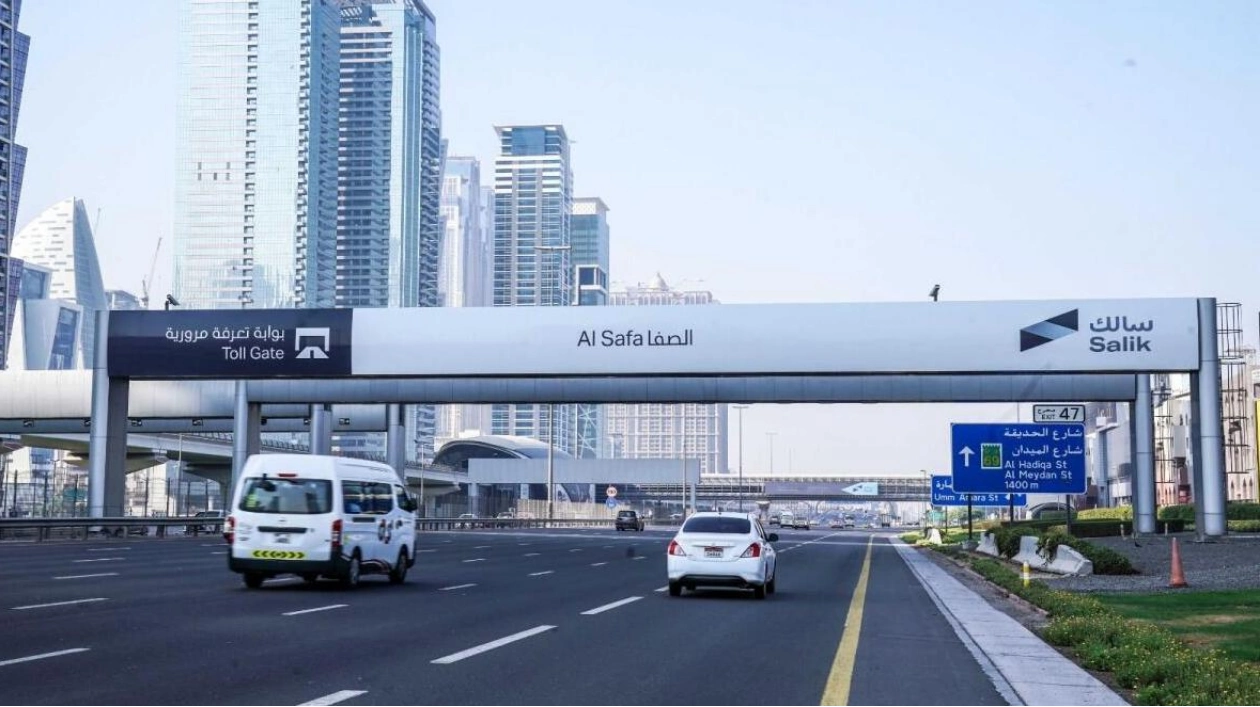Motorists face a dilemma: spend more on petrol or pay toll charges. Some drivers opt for longer routes to avoid Salik and save money on their daily commute. Take Abdul Qadir, 38, for instance. As the sole breadwinner of his family, every dirham counts. He currently pays Dh8 daily or Dh208 a month for driving through Al Mamzar Salik gates. With the addition of a new Salik gate at Business Bay in November, his toll expenses are expected to double to Dh16 a day or Dh416 a month. This additional cost of Dh208 is equivalent to two weeks of petrol expenses.
"I'm considering leaving early to avoid traffic and taking Al Nahda Road instead of Al Ittihad Road to bypass the Al Mamzar toll gate. I might spend a bit more on petrol, but it will be less than the toll costs," Qadir told Khaleej Times. By doing this, he estimates he could save at least Dh170 a month. "It's crucial for people with low incomes to cut costs and save money," he noted, adding that he rarely takes Sheikh Zayed Road to avoid the toll fee unless it's urgent.
Adnan Mehmood, an IT professional in Dubai, has devised various strategies to avoid Salik tolls, adjusting his routes based on his destination. For trips to Abu Dhabi or Jebel Ali, he takes the E311, a longer route but one that avoids Salik charges. For trips to Dubai Marina or JLT, he takes Jumeirah Road, which also avoids Salik charges and offers a scenic view of the city. Adnan acknowledges that sometimes paying the tolls is worth it to save time, especially when in a hurry.
M. Khan, a 28-year-old professional in Dubai, believes the choice to avoid Salik depends on the vehicle's fuel efficiency. For him, with a smaller car, it's more feasible to take longer routes to avoid tolls. He uses Google Maps to find Salik-free routes, which helps him keep travel costs down. Khan also prefers intercity roads, which are well-maintained and help him bypass Salik gates, even though they might be longer.
Fahad, a businessman commuting daily from Al Furjan to International City, is concerned about the financial impact of new Salik gates on his business. His current Salik charges for his fleet of rental vehicles range between Dh600 and Dh1,000 daily. With the addition of two new gates, this amount is expected to rise to between Dh1,000 and Dh1,500. He's exploring alternative routes and discussing options with his team to reduce toll expenses. His route choices depend on the situation and fuel prices, prioritizing time-saving when necessary.
Abeer, an aviation professional commuting from Muhaisnah 1 to Garhoud, suggests that motorists can adapt to the changes brought by new Salik gates. She recommends carpooling as an excellent way to save on Salik and fuel expenses, dividing costs among several people. Moving closer to the office is another option to significantly reduce travel time and expenses, including Salik charges and fuel costs. Abeer hopes that private sector companies will recognize the financial impact of these new Salik gates and provide additional allowances to help cover the extra expenses.






